Acknowledging indigenous languages at 30 years of democracy
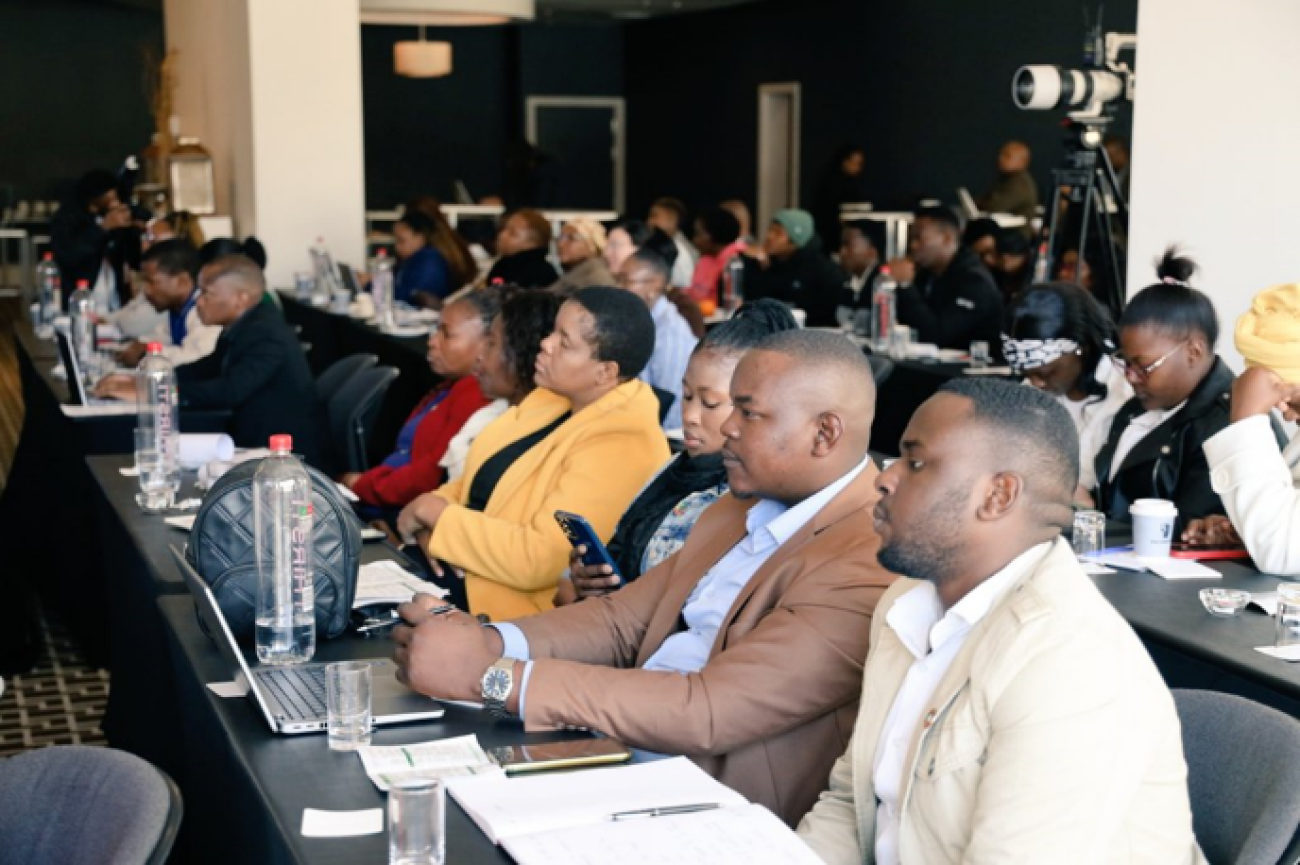
Ensuring that every language is respected and celebrated is essential to preserving cultural heritage and advancing inclusive development.
As South Africa commemorates three decades of democracy, the nation also is reflecting on the profound impact of linguistic diversity within its media landscape. This celebration coincides with the International Decade of Indigenous Languages (2022–2032) and the International Day of the World’s Indigenous Peoples, highlighting the United Nations’ dedication to multilingualism. These milestones underscore the importance of respecting and celebrating every language to preserve cultural heritage and foster inclusive development. They serve as a reminder of our collective commitment to safeguard and promote indigenous languages, ensuring they remain vibrant and integral to our shared future.
The South African National Editors’ Forum (SANEF) in conjunction with the Pan South African Language Board (PanSALB), the Press Council of South Africa, and the United Nations in South Africa hosted a seminar on the role of media in the development and preservation of indigenous languages in Johannesburg.
In a powerful address at the Indigenous Languages Media Seminar, SANEF Chairperson Nwabisa Makunga emphasized the critical role of indigenous languages as South Africa marks 30 years of democracy. “There is no greater time to acknowledge indigenous languages than at our 30-year democracy anniversary,” she stated. The seminar, marked significant milestones, including the translation of the SA Press Code into all official South African languages by the UN, now accessible to media practitioners nationwide.
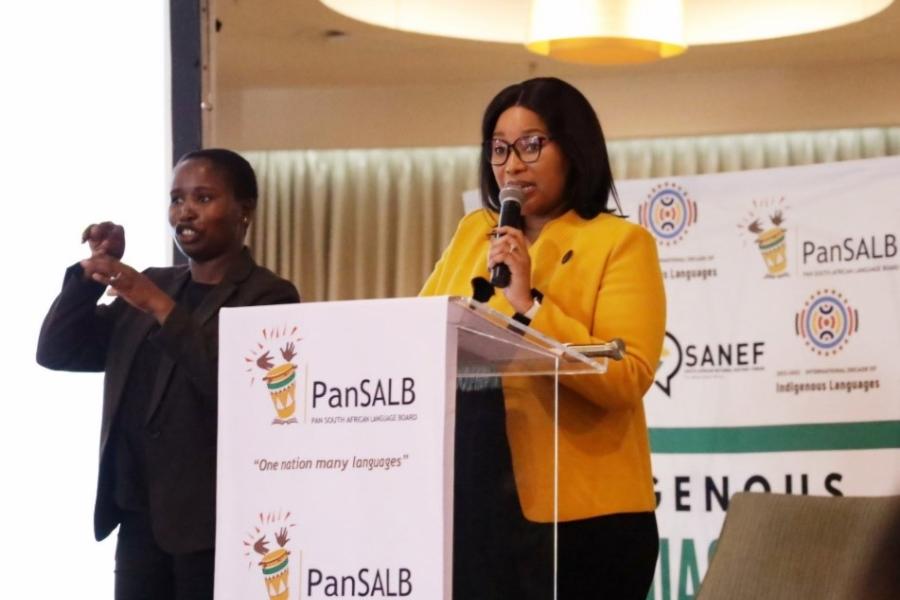
Makunga stressed the importance of producing credible journalism across all languages to ensure inclusivity and cultural preservation. “We must produce credible journalism across languages,” she said, reinforcing the idea that linguistic diversity in media strengthens democracy and fosters a more inclusive society. The translation of the Press Code is a step towards ensuring that ethical journalism standards are maintained across all linguistic groups in the country.
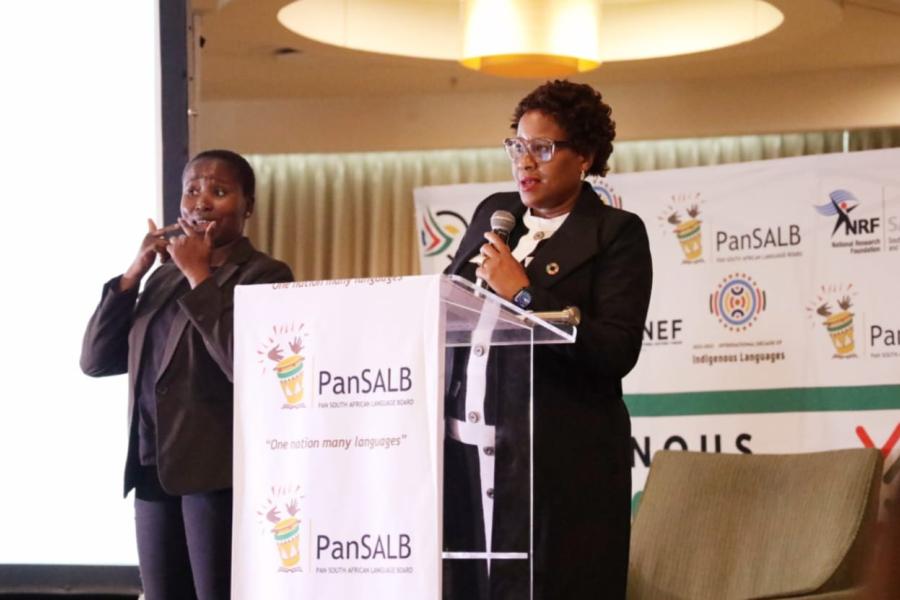
Kefiloe Masiteng, the Head of the UN Resident Coordinator’s Office, represented the UN and highlighted that preserving indigenous languages aligns with the sustainable development agenda of leaving no one behind. “Masiteng emphasized leveraging technology for language revitalization and preservation, stating, “We must concede the intersectionality of our linguistic diversity and promote the rights of indigenous communities as part of the sustainable development agenda to leave no one behind.”
The South African government has taken significant steps to promote and preserve indigenous languages. The Constitution recognizes the need to elevate the status of these languages and mandates practical measures to advance their use. Nine indigenous languages have been given official status alongside English and Afrikaans, ensuring their presence in government, education, and public life. PanSALB plays a crucial role in promoting and developing these languages.
Additionally, national events like Human Rights Day are used to highlight the importance of indigenous languages, with themes focused on their preservation and promotion. Educational programmes are also being implemented to incorporate indigenous languages into the school curriculum, ensuring that children can learn in their mother tongues and that these languages are preserved for future generations. These efforts reflect a broader commitment to cultural diversity and the recognition of linguistic heritage in South Africa.
Lisa Combrinck, the Media Liaison Officer at the Department of Arts, Sports and Culture, affirmed the department's commitment “to promote linguistic diversity, ensuring equality of access, and enabling people to communicate in their language of choice,” she said. Lisa also stressed the importance of strengthening partnerships for language research and implementing language policies.
Lance Schultz, CEO of PanSALB, posed a critical question: “Can the media platforms play a role in the development of indigenous languages and their survival?” Schultz talked about the need for equitable use of indigenous languages and highlighted the challenges, including a lack of respect for these languages. He advocated for bi-lingual education to promote social cohesion and called on the government to lead by communicating more in indigenous languages.
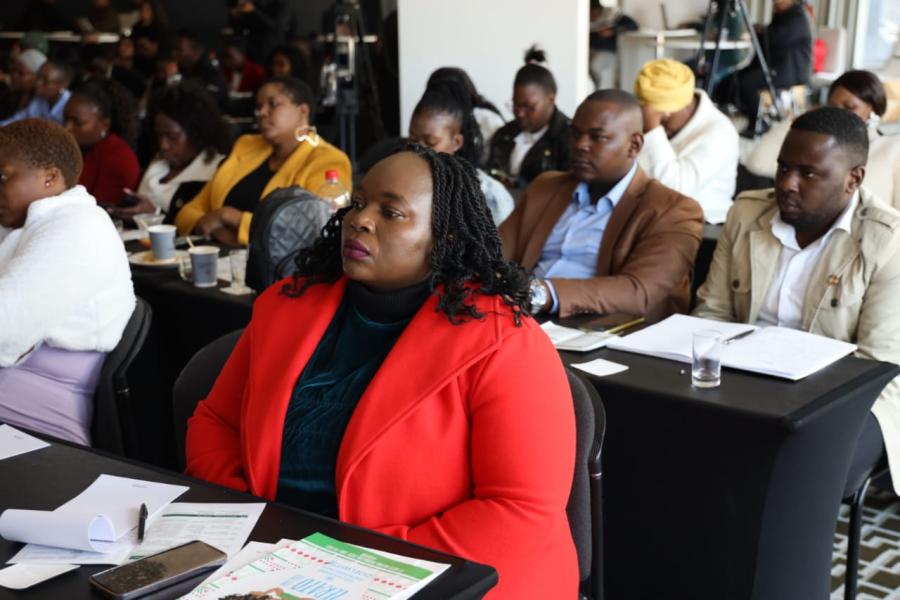
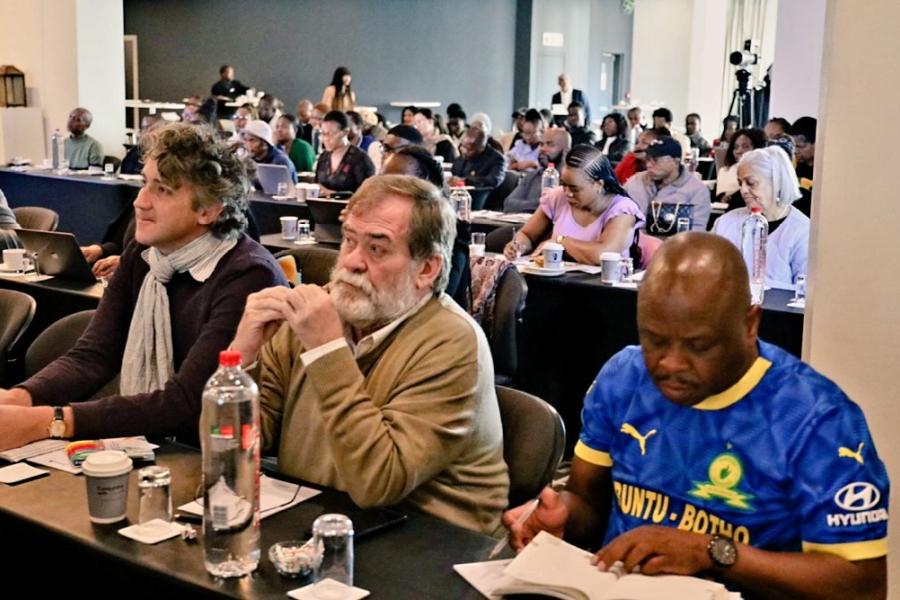
CSOs, members of academia, analysts, journalists and media professionals
There was an engaging panel discussion which underscored the media’s pivotal role in developing and preserving indigenous languages, addressing challenges, and leveraging technology to sustain the media sector. There was a consensus that the government needs to communicate more in indigenous languages and fulfill its commitments to promoting and preserving these languages. The seminar called for continued collaboration, innovation, and dedication to ensure every language in South Africa is heard, valued and celebrated.
Dr. Yanga Majola, manager at the Department of Applied Languages at TUT -Mbombela Campus, noted the positive efforts of the media, especially in digital and broadcast sectors, in promoting indigenous languages. “It is encouraging to see TV broadcasters using indigenous languages,” he said, also acknowledging the role of print media. He emphasized that media can foster empathy and inclusivity by dispelling the notion that African languages are only suitable for casual communication.
Zamuxolo Matiwana, the Media Coordinator at South African Agency for Science and Technology Advancement (NRF-SAASTA) highlighted the importance of indigenous knowledge depositories and dictionaries in supporting language research and promoting indigenous languages. “We need to develop comprehensive IsiNdebele dictionaries to support scientific research and data compilation,” she said, calling on PanSALB to assist with this initiative.
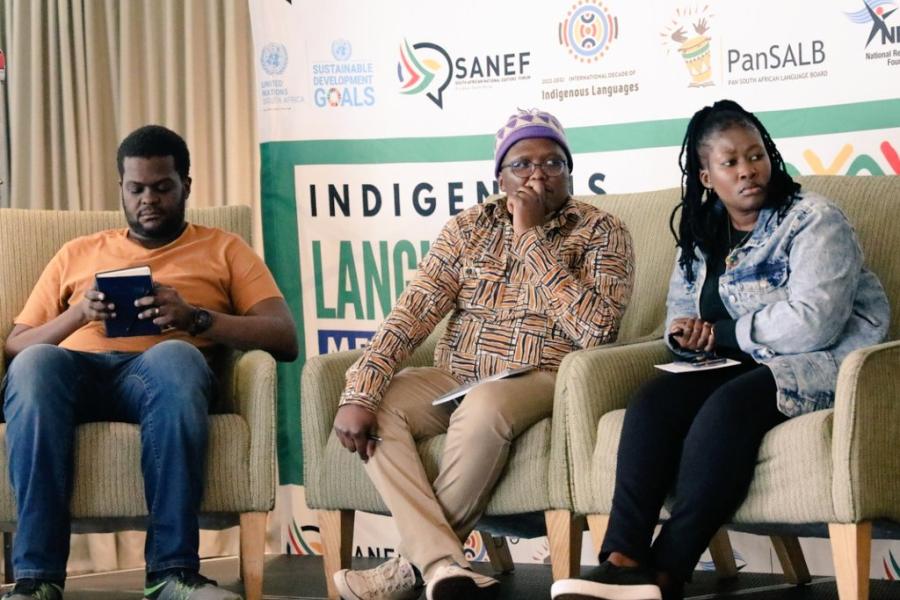
Communication SAASTA
(Left to Right) Prof. Vukosi Marivate from University of Pretoria, Dr. Yanga Majola a Manager at TUT Mbobela Campus and Zamuxolo Matiwan, Media Coordinator: Science
Communication SAASTA
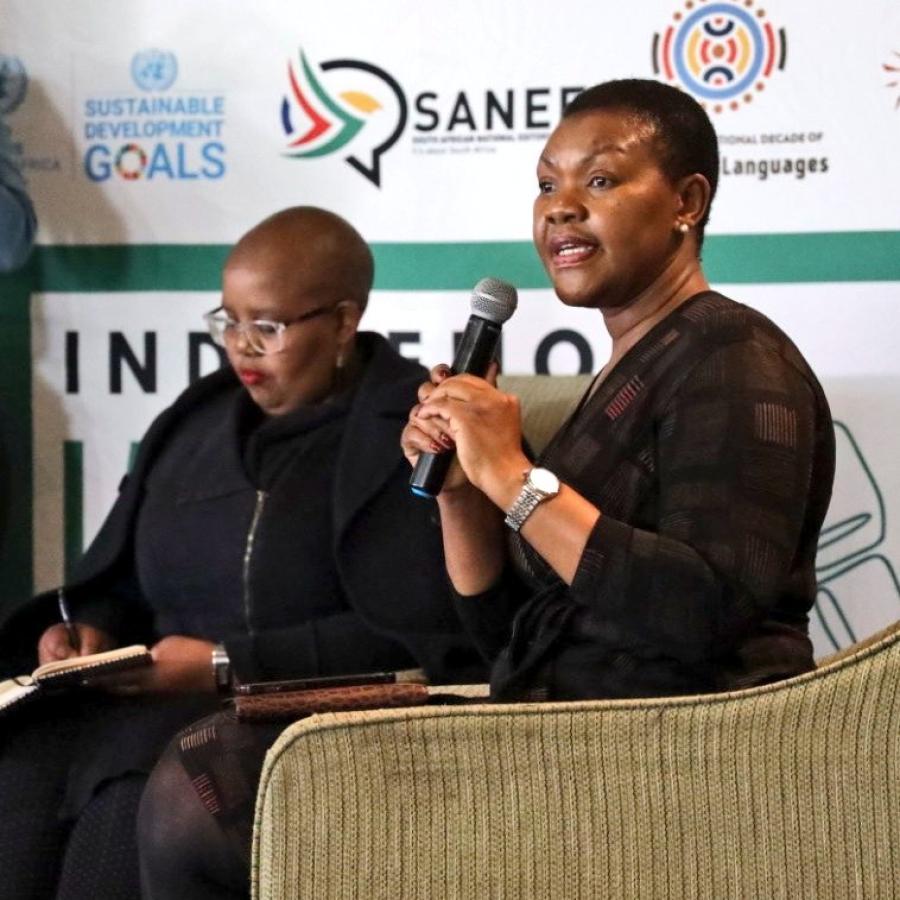
The seminar focused on the media’s role in developing and preserving indigenous languages, the impact of artificial intelligence on media, and strategies for the indigenous languages media sector to attract digital advertising and thrive.
Building on last year’s inaugural seminar, this event delved into the past year’s progress and identified next steps for promoting indigenous languages in the media. Key developments, such as the translation of the Press Council of SA’s Press Code into several indigenous languages, were highlighted and discussed. The seminar targeted journalists, academics, analysts, and business media professionals, with a strong emphasis on community media practitioners, especially from small and independent outlets. Participants came from digital, print, and broadcast media, as well as stakeholders interested in language development.



